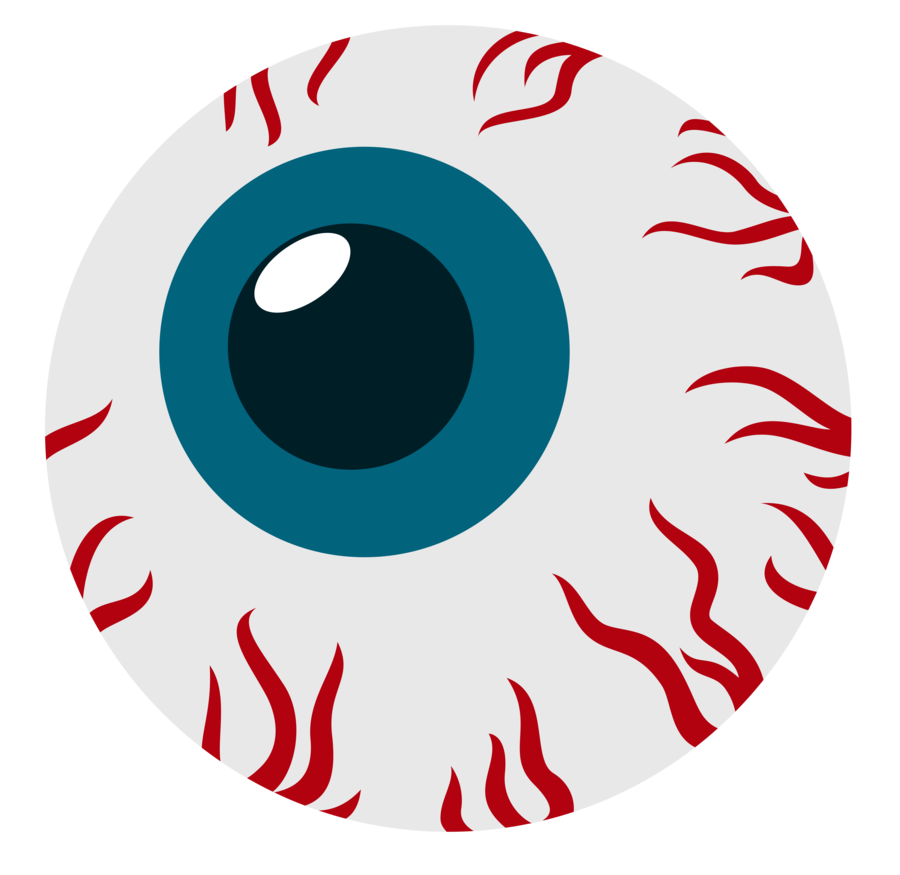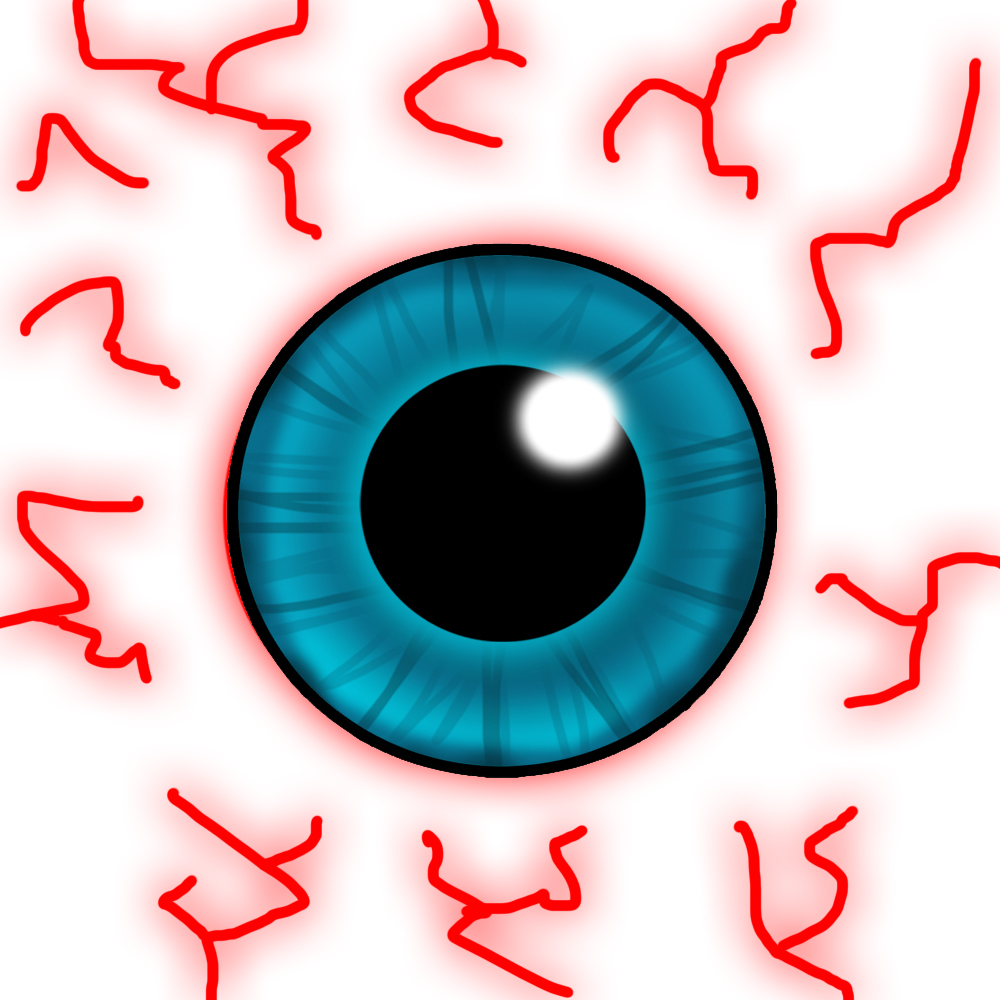Are you wondering why your eyes are bloodshot? Bloodshot eyes can be a sign of various underlying conditions, ranging from mild irritations to more serious health issues. This comprehensive guide will help you understand the reasons behind bloodshot eyes and how to address them effectively. If you've been searching for answers on why your eyes are bloodshot, you're in the right place.
Bloodshot eyes occur when the small blood vessels in the eye's surface become enlarged or inflamed, giving the eyes a reddish appearance. While this condition is generally harmless, it could indicate a more serious problem that requires medical attention. Understanding the causes and treatments is essential to maintaining eye health.
In this article, we will delve into the various reasons why eyes are bloodshot, explore symptoms, and provide practical solutions. Whether you're dealing with occasional redness or chronic discomfort, this guide aims to equip you with the knowledge you need to take care of your eye health.
Read also:Isaacandandrea Leak A Comprehensive Analysis And Insights
Table of Contents
- Causes of Bloodshot Eyes
- Symptoms of Bloodshot Eyes
- Common Conditions Linked to Bloodshot Eyes
- Eye Care Tips to Prevent Bloodshot Eyes
- Treatments for Bloodshot Eyes
- Effective Home Remedies for Bloodshot Eyes
- Prevention Strategies
- When to See a Doctor
- Impact of Lifestyle on Bloodshot Eyes
- Conclusion
Causes of Bloodshot Eyes
Bloodshot eyes are often caused by factors such as eye strain, dryness, allergies, or underlying medical conditions. Here are some common causes:
Eye Strain
Prolonged screen time, reading, or focusing on detailed tasks can lead to eye strain. When your eyes are overworked, they may appear red and irritated. To alleviate this, take regular breaks and follow the 20-20-20 rule: every 20 minutes, look at something 20 feet away for 20 seconds.
Dry Eyes
Dry eyes occur when your tear glands fail to produce enough lubrication, causing irritation and redness. This condition is common among people who spend long hours in air-conditioned environments or those who wear contact lenses.
Symptoms of Bloodshot Eyes
Bloodshot eyes are often accompanied by other symptoms, such as:
- Itchy or burning sensation
- Excessive tearing
- Sensitivity to light
- Blurred vision
- Discharge from the eyes
These symptoms may vary depending on the underlying cause of the redness. Paying attention to these signs can help you determine the appropriate course of action.
Common Conditions Linked to Bloodshot Eyes
Bloodshot eyes can be associated with various conditions, including:
Read also:Exploring The Enchanting Beauty Of 1132 Murphy Ridge Road Kentucky
Conjunctivitis
Also known as pink eye, conjunctivitis is an inflammation of the conjunctiva, the thin layer covering the eye. It can be caused by viral or bacterial infections, allergies, or irritants.
Blepharitis
Blepharitis is a condition characterized by inflammation of the eyelids, leading to redness, swelling, and discomfort. It is often caused by bacterial infections or poor eyelid hygiene.
Eye Care Tips to Prevent Bloodshot Eyes
Proper eye care is crucial in preventing bloodshot eyes. Here are some tips:
- Wash your hands regularly to avoid transferring germs to your eyes.
- Use artificial tears or lubricating eye drops to combat dryness.
- Protect your eyes from harsh sunlight by wearing sunglasses.
- Ensure your contact lenses are clean and replace them as recommended.
Incorporating these practices into your daily routine can significantly reduce the likelihood of developing bloodshot eyes.
Treatments for Bloodshot Eyes
Treatment for bloodshot eyes depends on the underlying cause. Below are some common treatment options:
Over-the-Counter Eye Drops
Eye drops containing antihistamines or decongestants can help alleviate redness and irritation caused by allergies or mild infections.
Antibiotics
In cases of bacterial infections, your doctor may prescribe antibiotic eye drops or ointments to clear the infection.
Effective Home Remedies for Bloodshot Eyes
For mild cases of bloodshot eyes, home remedies can provide relief:
Cold Compress
Applying a cold compress to your eyes can reduce swelling and soothe irritation. Simply soak a clean cloth in cold water, wring it out, and place it over your closed eyes for a few minutes.
Cucumber Slices
Cucumbers have natural anti-inflammatory properties that can help reduce redness and puffiness. Place chilled cucumber slices over your eyes for 10-15 minutes for instant relief.
Prevention Strategies
Preventing bloodshot eyes involves maintaining good eye hygiene and adopting healthy habits:
- Avoid rubbing your eyes, as it can introduce bacteria and worsen irritation.
- Stay hydrated to maintain optimal tear production.
- Use a humidifier in dry environments to prevent dry eyes.
- Get regular eye exams to detect and address potential issues early.
By following these preventive measures, you can minimize the risk of developing bloodshot eyes.
When to See a Doctor
While most cases of bloodshot eyes are harmless, some situations require medical attention. Consult a doctor if:
- Your symptoms persist for more than a few days.
- You experience severe pain or vision changes.
- There is discharge or swelling in or around the eyes.
- You suspect an eye injury or foreign object in the eye.
Seeking professional advice ensures timely diagnosis and treatment, preventing potential complications.
Impact of Lifestyle on Bloodshot Eyes
Your lifestyle choices can significantly affect eye health. Smoking, excessive alcohol consumption, and lack of sleep can contribute to bloodshot eyes. Making positive lifestyle changes, such as quitting smoking and adopting a balanced diet, can improve overall eye health and reduce the occurrence of bloodshot eyes.
Conclusion
Bloodshot eyes are a common issue that can result from various factors, ranging from environmental irritants to underlying medical conditions. By understanding the causes, symptoms, and treatment options, you can take proactive steps to protect your eye health. Remember to prioritize regular eye care and seek medical advice when necessary.
We encourage you to share your thoughts or experiences in the comments below. If you found this article helpful, consider sharing it with others who may benefit from the information. For more insights on maintaining optimal eye health, explore our other articles on the site.


